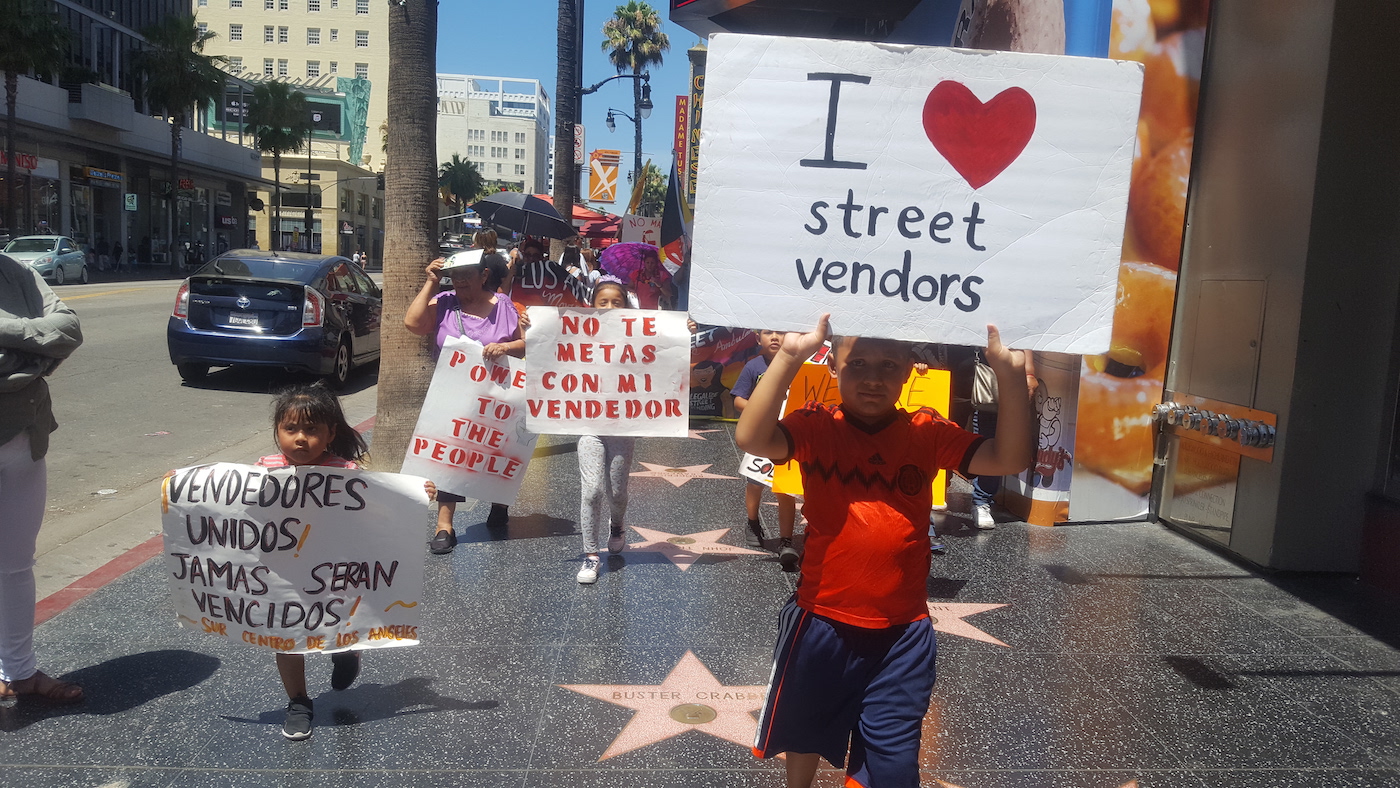[dropcap size=big]T[/dropcap]he California legislature cranked out a raft of new bills last year that outgoing Gov. Jerry Brown signed into law and are now affecting L.A.’s favorite restaurants, bars, food trucks, street vendors, and home kitchen businesses. As of Jan. 1 — two days ago — there are also a number of city ordinances that went into effect that will impact the way food and beverages are sold and consumed in Los Angeles.
$12 Minimum Is Here, and Going Up
Sure, the minimum wage increase implemented Jan. 1 is good news for restaurant workers, but it could also forces Los Angeles restaurateurs to consider new ways to offset costs. It’s the third consecutive year of increasing wages, and it will continue until it is $15 an hour in 2022. The minimum wage is lower for businesses that have 25 employees or less, but eventually it will be $15 across the board.
Restaurants could adapt by offering costlier menu items that yield better margins thereby offsetting the increasingly higher labor costs. Another strategy could be to squeeze more productivity from each employee to provide the same level of customer service with fewer people in the restaurant, analysts say.
Plastic Straws & Styrofoam Cups
California’s statewide plastic straw ban, Assembly Bill 1884, took effect in 2019. The law requires full-service restaurants to provide plastic straws only upon request, with violations resulting in fines ranging from $25 to $300. All fast food restaurants are exempt from AB 1884.
Locally, the Los Angeles City Council proposed a similar bill in December. The council’s effort initiated a citywide single-use plastic straw ordinance that phases out single-use plastic straws by 2021. Months earlier, the cities of Long Beach, Manhattan Beach, and Malibu each passed their own ordinances concerning plastic straws and Styrofoam in 2018.
CBD Cocktails
CBD cocktails were insanely popular in Los Angeles after recreational pot became law last year. No more. It won’t be 420 at happy hour, not in California. Assembly Bill 2914 prohibits the sale of cannabis mixed with alcoholic beverages.
Bars and restaurants must adhere to this legislation or risk losing their liquor license. L.A. hot spots such as Gracias Madre and Pattern Bar have already eliminated CBD cocktails from their menus.
Soda Isn’t for Kids Anymore
Sure, it could be ridiculed as nanny-state over-reach, but Senate Bill 1192 is now the law of the land. The new law requires restaurants to make water or unflavored milk the default drink in kid’s meals. But parents can still request sugary drinks as substitutes. Settle down, Winston Smith.
Home Food Operators
California’s independent food operators got the seal of approval from Sacramento. Now, Homemade Food Operations are legal. Assembly Bill 626 ushers in a county-level permit and inspection process for micro-enterprise home kitchens. Now, home-kitchen businesses can manufacture, pack, and handle processed foods after getting a permit. They’re restricted from selling more than 60 individual meals a week, with no more than $50,000 in gross annual sales.
There’s lots of potential in the nexus of food and tech. Home cooks could prepare meals for customers during an AirBnB stay, or even offer cooking classes and other dining related services. Drive hailing apps can easily expand into this area, too. For example, Postmates or UberEats already deliver meals for restaurants. Why not add home-cooked meals for customers?
Street Vending
The Safe Sidewalk Vending Act, or Senate Bill 946, decriminalized street vending in the entire state. SB 946 requires cities and counties to maintain certain rules when interacting with street vendors, or they cannot enforce the law. That’s good news for L.A.'s food vendors.
It is also the reason the L.A. City Council unanimously approved an ordinance in late November to comply with the law. The bad new is, it’s still unclear how L.A. County will treat food vendors, including where they can and cannot operate, the permitting process for them, and fine them. The city is still working on the details.
RELATED: 'We Won!' ~ Street Vendors Rejoice as Los Angeles Finally Makes it Legal






